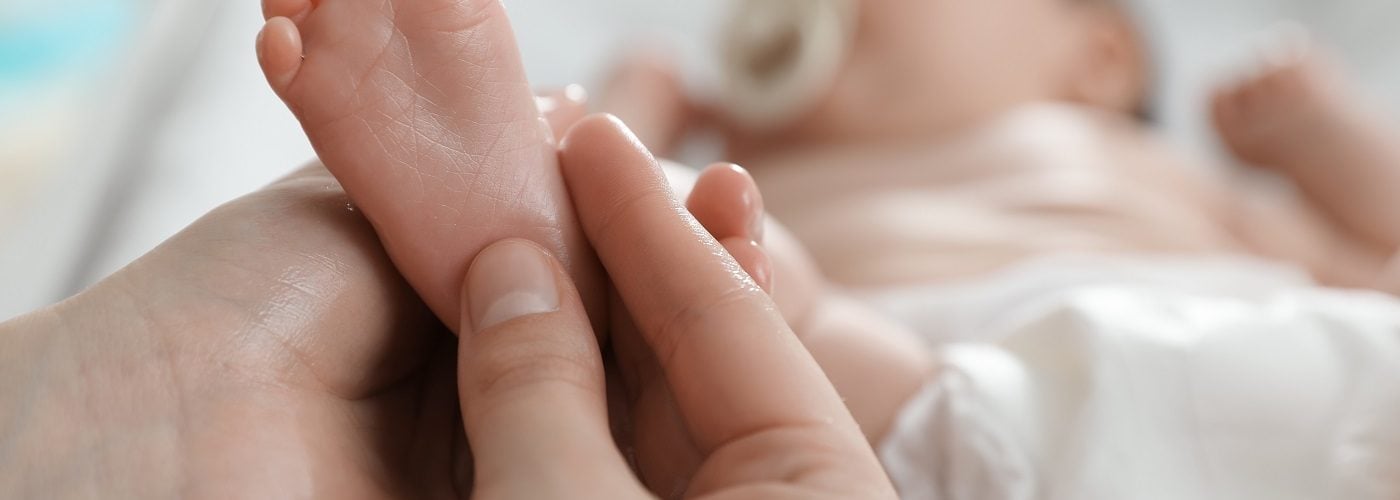
It’s understandable that many people who experience the joy of holding their own baby in their arms want to do it all over again. Many parents wish to provide a sibling for their offspring or complete their family within what they judge to be an ideal timescale.
The desire to grow or complete the family can be especially pressing for those who have become parents thanks to IVF fertility treatment, and who may have tried for years without success before seeking help. It could be that the ticking of the biological clock is what prompted them to seek help in the first place, and they may feel that time is not on their side. So how soon can you do IVF after having a baby? Are there special considerations for IVF after birth compared with the first time, and when is the optimum time for starting IVF for a second baby?
How soon can you do IVF after having a baby?
For a great many families, the period between children turns out to be roughly two years, and there are lots of reasons for this. There’s the need for bonding time with your first child, an interlude in which your body can recover and your fertility return, not to mention the need to avoid overloading yourself in terms of the emotional and physical demands of caring for a very young child.
There is also the issue of breastfeeding to consider. In most circumstances we would never advise against breastfeeding, because this gives your child the best possible start in life, but it’s a well-known fact that breastfeeding does have a (not 100% reliable) contraceptive effect. When you are breastfeeding, your body produces prolactin, a hormone which is necessary for the production of milk but which also has the effect of suppressing ovulation.
While your natural hormones are suppressing ovulation, clearly it would not be a good time to start a new cycle of IVF treatment. It involves the necessary step of administering hormonal medication to stimulate the ovaries to produce multiple mature eggs.
Of course, you don’t need to have had assisted fertility treatment the first time round in order to seek help with conceiving your second child. There are many instances of infertility in which a woman or a couple have successfully conceived their first child without fertility assistance and then find that they are unable to go on to another pregnancy. This is known as secondary infertility and is surprisingly common. If you’d like to know more about this, have a look at our article on Secondary Infertility and its Treatments.
Are there any differences in timescale for natural conception or IVF for a second child?
Most fertility doctors agree that it is best for the health of both mother and child to wait for at least 12 months, to have finished breastfeeding. You should have had at least two menstrual cycles before trying for another child. This would normally apply to either natural conception or assisted fertility treatment. In addition to this, the main consideration when going for another round of IVF after the birth of a child is whether you need a completely new cycle or whether you have one or more stored embryos from a previous cycle.
- If you are starting all over again with a complete IVF cycle, the whole process is going to take slightly longer. In any case, we have seen that you would almost certainly be advised to wait for a year. When you’re ready to start, the fertility doctor may want to wait until the appropriate time in your cycle to begin the hormonal stimulation. This is the start of the IVF process. One full cycle can take between three and four weeks. This involves stimulation of the ovaries, retrieval of the eggs, fertilization in the laboratory and finally transfer of the embryo back into the uterus. It would be followed by a two-week wait to discover whether the embryo has implanted successfully, and you are pregnant.
- If you have had a previous cycle of IVF and you have some good-quality frozen embryos, the process is a little quicker. In this case, you would not need to go through the approximate three weeks of hormonal stimulation, but you would need to have a shorter period of preparation of your uterus so that the womb lining is in the optimal state for reception and implantation of any embryo. This could be repeated, if necessary, probably at two-month intervals, if the first or subsequent attempts are not successful.
When is the best time to start IVF for a second baby?
The general advice is that in most cases it would be best to wait at least a year after the birth of your child. Aside from this, it won’t surprise you to hear that there is no hard and fast rule. Every patient is a unique individual. Your fertility advisor would need to consider your personal circumstances and medical history, as well as your age and the reasons for your infertility.
The good news is that an Australian study published in Human Reproduction, one of the foremost reproductive medicine journals in the world, found that women who have had a first child born with the help of IVF treatment have a good chance of having a second child with the same type of help. The study’s researchers found that a woman’s chances of a second baby using assisted reproduction technology were between 51% and 88% after six cycles.
Contacting us at IVI
If you would like to know more about our treatments and services, or if you would like to discuss your own circumstances, do get in touch using our online contact form. As a member of the world’s largest assisted reproduction group, there’s a very good chance that we can help.





Comments are closed here.